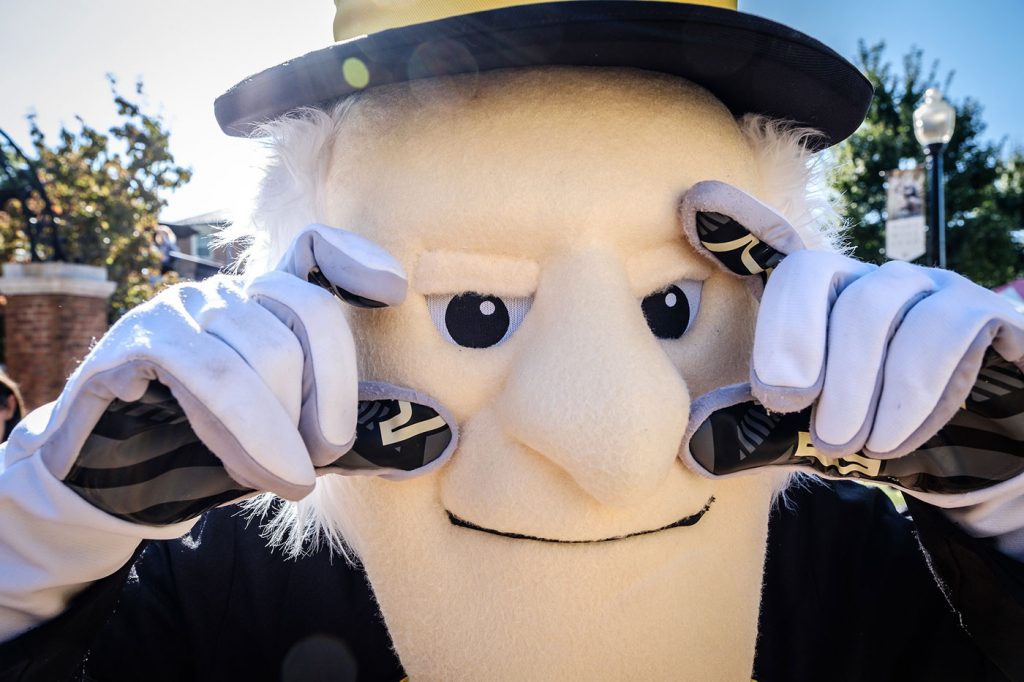Student Life
Getting lost can be a great way to find yourself.
Wake Forest is intentionally designed to be a place where you can lose yourself in what inspires and interests you, in the company of others doing the same. One of the things students appreciate most about the School of Divinity is the close community day in and day out. Because of the small class size, students get to know each other and learn from each other in class and outside of class.
- We worship together once a week as a community.
- Students are able to dine on campus with a faculty member through our Lunch & Learn Program.
- The annual Fall Renewal Service, Incarnation Celebration (at the end of the fall semester), and End of Year Banquet (at the end of the spring semester) are high points of the year.
Life is more than books and ministry is more than preaching. Students are encouraged to take advantage of the rich resources of the University and the city of Winston-Salem.
Additional campus resources waiting for you:
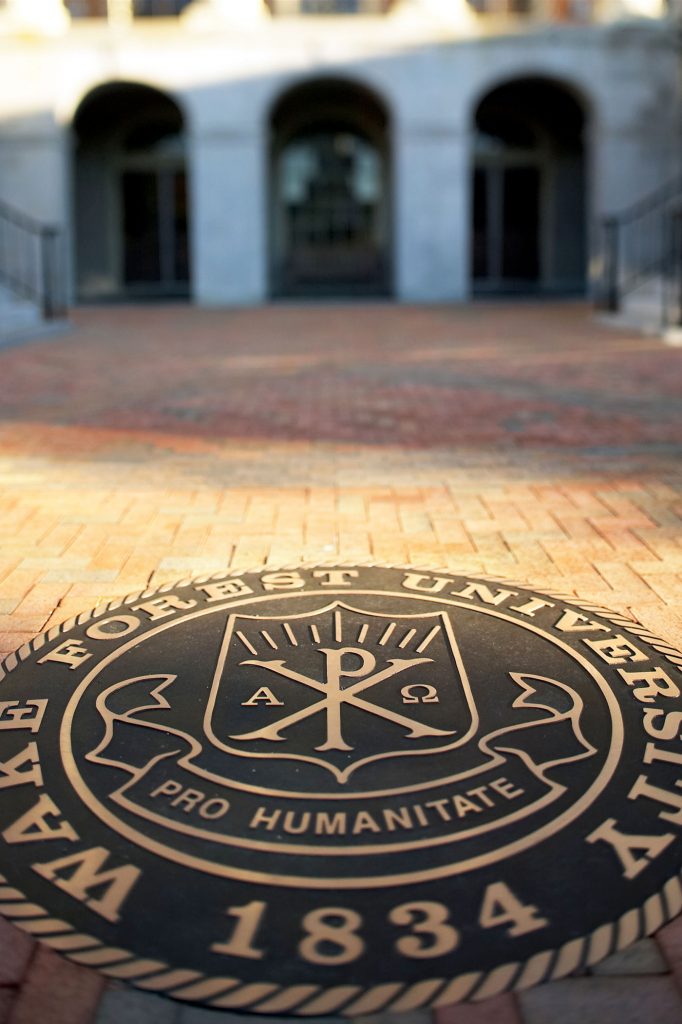
Pro Humanitate
It’s not about you. It’s about us, and the greater meaning what it means to be human. Our motto, Pro Humanitate (For Humanity), is a calling to use our knowledge, talents and compassion to better the lives of others. It can mean donating time and resources to our communities or simply a lifelong commitment to pursuing our best self. No matter your personal interpretation, it’s an opportunity to leave the world better than we found it.
“From the inception of this University, the vision was one of graduates capable of applying the lessons learned here for the good of humanity. Fulfilling our Pro Humanitate motto requires education to extend beyond the classroom. I have come to think of educating the whole person as requiring a commitment to five core elements: intellectual curiosity, character, wellness, global awareness and innovation.”
— President Nathan O. Hatch, from his speech “Where We Stand“
Diversity
Together we’re different. The education we offer is a direct result of the environment and culture we foster, and the simple truth is that what makes people different makes them interesting. In our world, diversity has come to largely be defined by ethnic and socioeconomic factors. While these are incredibly important, we like to go further. Ours is a definition that includes talent, geography, life experience, religion, sexual orientation, ability and the endless list of variables that come together to form individuality. Everything you are, have been and will be what makes Wake Forest what it is. So bring what interests you.
- 71% of the student body is under the age of 30 (age range is 22 – 64, with the mode age, or most occurring, being 24)
- They come from 16 states and 6 countries
- They represent 53 undergraduate colleges and universities
- Women represent 61% of the student body
- 40% of the student body identifies as ethnic minority
- More than 21 ecumenical voices (denominational affiliations)
- Whatever your educational background, your voice is welcome. Divinity students hold degrees and work experience in religion, theology, the humanities, social and behavioral sciences, natural and physical sciences, technical studies, fine arts, education, and beyond
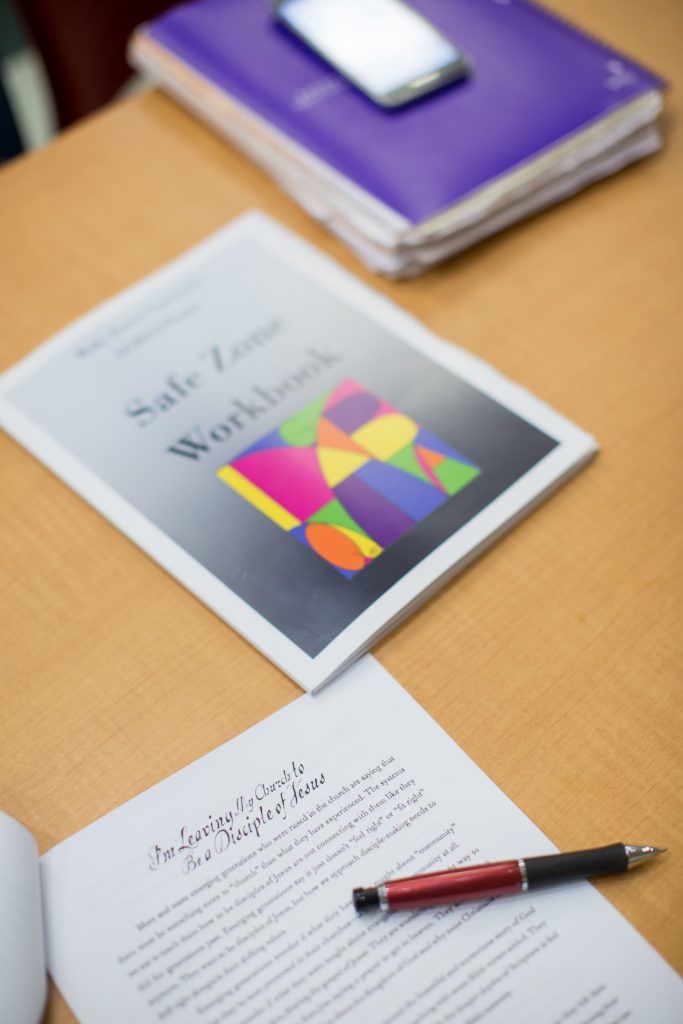
R-E-S-P-E-C-T: The Diversity and Inclusion Leadership Team develops and articulates the institutional approach to fostering a diverse and inclusive campus community. We work collaboratively with faculty, administrators, staff, and students to create a campus culture that transforms the driving assumptions underlying our policies, the allocation of resources, and the synthesis of institutional practices to assure our increasingly diverse population receives equitable treatment.
The Intercultural Center is committed to enhancing the experience of domestic and international underrepresented groups by offering co-curricular programming, advising and advocacy that enhances intercultural knowledge, competency and leadership. By promoting a welcoming environment, we strive to uphold the Wake Forest mission of Pro Humanitate.
Feel free to be yourself. The LGBTQ Center provides support and advocacy to Wake Forest University’s lesbian, gay, bisexual, transgender, queer and questioning students, faculty and staff, and education to the entire campus community about issues of gender identity and sexual orientation.
You belong here. The Women’s Center strives to create an educational and professional environment that supports women and promotes gender equity. We foster safe spaces to reflect on individual and collective experiences and identities; develop co-curricular programming around women’s and gender issues; advance professional development; and identify and advocate for policies to improve gender climate and inclusive practices at the institution. As part of the Office of the Provost, the Women’s Center works with and advocates for students, faculty, and staff, and is open to all members of our community interested in thinking critically about gender issues.
Z. Smith Reynolds Library
Shushing the norm.
The Z. Smith Reynolds Library is the 2011 recipient of the Association of College and Research Libraries Excellence in Academic Libraries award (that’s the NCAA Championship of libraries). Boring doesn’t live here, and the intellectual hub of our campus comes fully stocked with all things interesting. Come on in, and alter your perception of libraries forever.
- Over 95,000 theological holdings as part of 1.9 million volumes (and growing)
- Open 138 hours per week with two all-night study rooms
- 56 full time faculty and staff
- Starbucks Coffee Shop on-site
Health and Well-Being
There are eight sides to this story. Wellbeing is about much more than physical health. Here, it’s an eight-dimensional balancing act that – when maintained properly – leaves us best able to cope with adversity, build rewarding relationships and live with a sense of purpose. College, and life in general, can be at times overwhelming. The ability and personal awareness to slow things down and remember what matters is a valuable skill in a competitive world. It’s why we added board games, ping pong, a piano and more casual seating to some of our most trafficked public spaces in 2013 – and continue to do so each semester. It’s why we have almost 200 clubs and organizations for students to do what makes them happy. And it’s also why, in 2014, we launched a new comprehensive approach to wellbeing on our campus. Wake Forest created Thrive to provide students with the skills, knowledge and perspective to maintain a healthy, balanced life – wherever life takes them. Your wellbeing is, and will always be, your responsibility. We’re here to help you along the way.
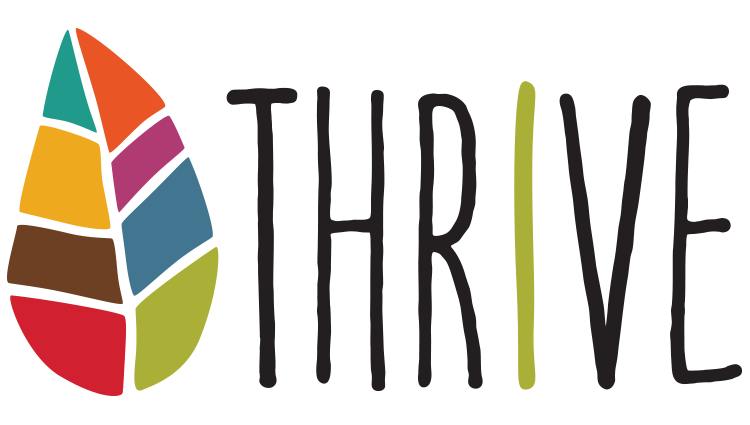
Sustainability
Of the environment, for the environment. We’re invited guests on this planet and our Office of Sustainability offers many ways for us to show we know what that means. With a special blend of innovation and common sense, this office works to support and encourage our campus and local communities in a shared mission to love the world we’re with. How we’ve made a difference:
- 7 LEED certified Green buildings constructed on campus since 2010
- Every 9 minutes the Choose to Reuse program saved another disposable bottle from a landfill
- Demon Deacons rallied together in May to divert over 22,500 pounds — over 11 tons — of discarded goods from the landfill as part of Deacs Donate, an end-of-year move-out waste reduction campaign
- 46 water bottle refill stations across campus, and counting…
- We shed more than 8000 pounds…of books, by donating them to Better World Books, a champion of global literacy
- 900 meals per month provided to Winston-Salem residents through the efforts of the University’s Campus Kitchens program
- 5 forms of alternative transportation offered on campus
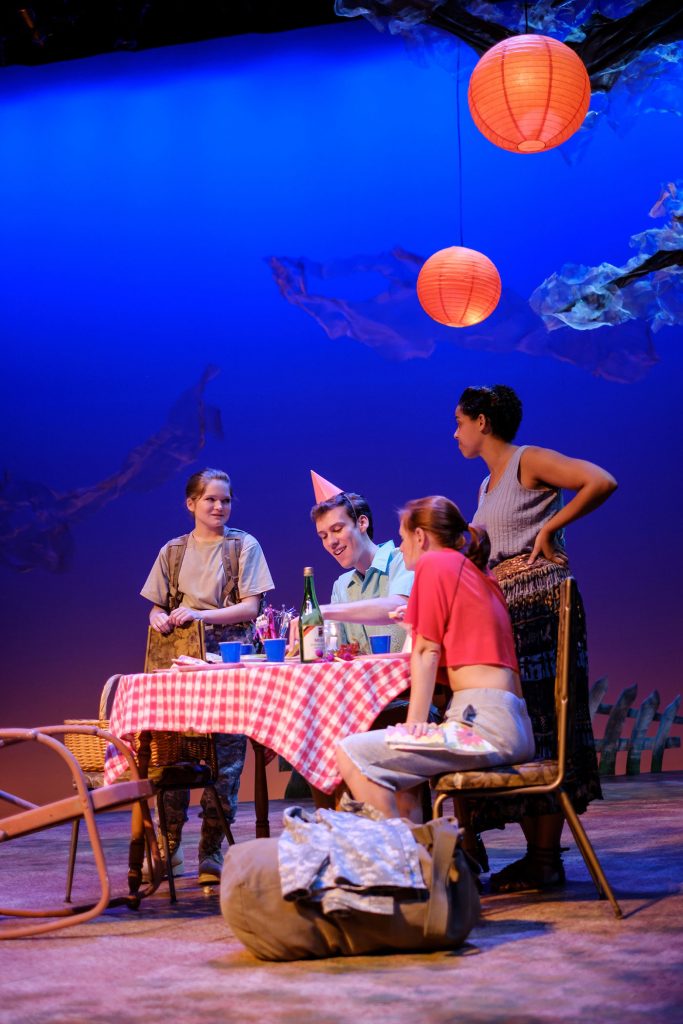
Arts, Theatre, and Culture
All the campus is a stage.
Or a canvas, a dance floor or a concert hall. As a student at Wake Forest you’ll find yourself within arms reach of artistic expression at all times, and that includes the greater Winston-Salem community and its many opportunities to experience or participate in the fine arts.
Theatre Department
The theatre department supports interdisciplinary exploration of its plays through the Interdisciplinary Performance and the Liberal Arts Center (IPLACe), which connects the performing arts and other academic departments. The department allows students to participate from their first year, and performs, on average, 4 major productions per academic year that are open to the entire student body.
Film Studies
Students many approach the study of film through courses that explore their cultural, political, and social implications. Participate in the annual Reynolda film festival of student films from around the world, meet filmmakers and screen their films. Past guests have included Oscar-winning Robert Elswit, the director of photography for “There Will Be Blood;” Francesco Tabone, noted Mexican documentarian; and Bruce Cohen, the producer of “American Beauty” and “Big Fish.”
START Gallery
The START Gallery, Wake Forest University’s student art gallery located in Reynolda Village, is unique in that it serves as a year-round venue for viewing, discussing, and purchasing student works of visual art. Presenting 12-15 exhibitions per year, the gallery provides undergraduates and alumni with an opportunity to gain immersive experience and transferable skills in the visual arts market by developing a setting in which high quality student art is available at reasonable prices.
Museum of Anthropology
The Museum of Anthropology‘s permanent collection consists of objects from the Americas, Africa, Asia, and Oceania, including household and ceremonial items, textiles, hunting and fishing gear, and objects of personal adornment. Materials collected by Moravian missionaries can be found here, as well as prehistoric artifacts from North Carolina’s Yadkin River Valley. The special exhibits gallery houses exhibitions reflecting University and community interests and provides faculty and students opportunities to develop and install exhibits, research and care for collections, and produce special class project exhibits.
Hanes Art Gallery
The Charlotte and Philip Hanes Art Gallery at Scales Fine Arts Center provides an ongoing schedule of exciting art exhibits, and it features student exhibitions as well as work by Pablo Picasso, Roy Liechtenstein, Andy Warhol, Jasper Johns and Keith Haring, among others.
Secrest Artist Series
The Secrest Artist Series was established to bring the best performing artists to campus — all free of charge to students, faculty and staff.
Reynolda House
Reynolda House, Museum of American Art, boasts one of the finest collections of American art in the Southeast, ranging from the colonial period to the present. The museum features works by Albert Bierstadt, John Singleton Copley and Grant Wood, all in the distinct setting of the historic home of Katharine and R.J. Reynolds, located a short walk from campus.
Sports and Athletics
…and the crowd goes wild.
The smallest school in the Atlantic Coast Conference has the biggest heart. And lungs. We also have a decent-sized trophy case that includes as many accolades from inside the classroom as those earned on the field.
Meet the Demon Deacon
What’s in a name?
Everything, when you’ve previously taken the field as the Tigers (shockingly not indigenous to NC), and the Baptists (nothing strikes fear into the hearts of opponents like the clergy). After a win over Trinity (now Duke University) in football in 1923, the name ‘Demon Deacons’ stuck after it was used to describe the team’s “devilish” play and fighting spirit in the victory.
He may be old and wears funny pants, but the Demon Deacon makes his formidable presence felt on courts, fields, pitches and courses across the country. And while he lacks the fangs, claws or weaponry of his mascot brethren (though he once menacingly wielded a plunger that over time evolved to become a cane), the fury that resides in his sideburns alone is more than enough to make even the baddest of mascots quake in their oversized, foam-filled novelty shoes.
